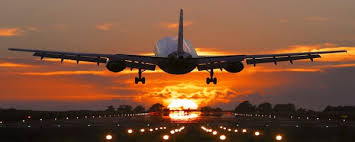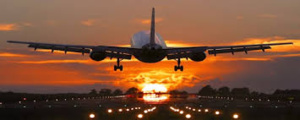The duopoly of Airbus and Boeing will be forced to share the stage at future shows as newcomers from Russia, China and Japan muscle into the passenger plane market even though this year's Paris Air Show was dominated by the annual order battle between the two largest aircraft manufacturing companies.
For the first time during the air show, Japan's Mitsubishi Aircraft Corp brought its MRJ regional jet to Europe. And in their bids to enter the $100 billion-plus annual aerospace market, China and Russia carried out maiden flights of new narrow-body aircraft last month.
And in order to build wide-body jets to challenge incumbents, the two countries have also set up a joint venture.
About 7-8 percent are for planes from new entrants, among them Russia, China and Japan among the current order backlog of around 13,000 planes, estimates consultants Alix Partners.
It will take at least decade for China and Russia to mount a proper challenge, delegates at the show said. Gaining customer confidence by deploying and maintaining a quality aircraft maintenance and support network and proving their technology, are among the headwinds that the newcomers face.
"Overall, there are big steps not only on the product side but on the support and services side for the airlines to feel confident that they can go in and order those aircraft," Pascal Fabre, managing director at Alix Partners in Paris, said.
However, orders from their home countries alone could propel the respective airliner ventures as China and Russia have large enough markets.
China Eastern has ordered up to 20 planes from the Chinese manufacturer COMAC and is the company’s first customers for its C919. The Russian MS21 is due to be taken by Aeroflot.
Total orders for the C919 stood at 600 from 24 customers, COMAC said this week.
People he met at the air show showed great interest in the MS21 and the Russian-China wide-body cooperation, said Giorgio Callegari, strategy and alliances director at Russian carrier Aeroflot. From state defense conglomerate Rostec, Aeroflot is set to lease 50 MS21 planes.
"If maybe in the past, Russian airplanes were discarded as a non-factor, they are now taken much more seriously and people can see that they are potentially a serious competitor," he said.
Provided they met operational and performance requirements, he would not have a problem buying jets from Chinese or Russian manufacturers, said the chief executive of Qatar Airways, Akbar Al Baker.
While placing their bets on China's COMAC to win that third spot, some executives at the airshow said the marketplace would eventually settle on three major manufacturers.
"Twenty years from now, I think there'll be the big three manufacturers of Airbus, Boeing and China," said Airbus sales chief John Leahy.
However, to get the product line and support network up to scratch it would be hard for countries to make billions of dollars of investments over decades, Leahy said.
He too is betting on the Chinese, said Cedric Goubet, vice president of commercial engines at Safran.
"My feeling is that it will be the Chinese. They have the resources, the skills, the national ambitions and a huge domestic market," he said, while adding that it was also crucial to get export orders.
The aircraft market was big enough to share, said Dang Thiehong, deputy head of marketing at China's COMAC. "We hope to provide our services and products to the market no matter in which part of the world," he said.
(Source:www.reuters.com)
For the first time during the air show, Japan's Mitsubishi Aircraft Corp brought its MRJ regional jet to Europe. And in their bids to enter the $100 billion-plus annual aerospace market, China and Russia carried out maiden flights of new narrow-body aircraft last month.
And in order to build wide-body jets to challenge incumbents, the two countries have also set up a joint venture.
About 7-8 percent are for planes from new entrants, among them Russia, China and Japan among the current order backlog of around 13,000 planes, estimates consultants Alix Partners.
It will take at least decade for China and Russia to mount a proper challenge, delegates at the show said. Gaining customer confidence by deploying and maintaining a quality aircraft maintenance and support network and proving their technology, are among the headwinds that the newcomers face.
"Overall, there are big steps not only on the product side but on the support and services side for the airlines to feel confident that they can go in and order those aircraft," Pascal Fabre, managing director at Alix Partners in Paris, said.
However, orders from their home countries alone could propel the respective airliner ventures as China and Russia have large enough markets.
China Eastern has ordered up to 20 planes from the Chinese manufacturer COMAC and is the company’s first customers for its C919. The Russian MS21 is due to be taken by Aeroflot.
Total orders for the C919 stood at 600 from 24 customers, COMAC said this week.
People he met at the air show showed great interest in the MS21 and the Russian-China wide-body cooperation, said Giorgio Callegari, strategy and alliances director at Russian carrier Aeroflot. From state defense conglomerate Rostec, Aeroflot is set to lease 50 MS21 planes.
"If maybe in the past, Russian airplanes were discarded as a non-factor, they are now taken much more seriously and people can see that they are potentially a serious competitor," he said.
Provided they met operational and performance requirements, he would not have a problem buying jets from Chinese or Russian manufacturers, said the chief executive of Qatar Airways, Akbar Al Baker.
While placing their bets on China's COMAC to win that third spot, some executives at the airshow said the marketplace would eventually settle on three major manufacturers.
"Twenty years from now, I think there'll be the big three manufacturers of Airbus, Boeing and China," said Airbus sales chief John Leahy.
However, to get the product line and support network up to scratch it would be hard for countries to make billions of dollars of investments over decades, Leahy said.
He too is betting on the Chinese, said Cedric Goubet, vice president of commercial engines at Safran.
"My feeling is that it will be the Chinese. They have the resources, the skills, the national ambitions and a huge domestic market," he said, while adding that it was also crucial to get export orders.
The aircraft market was big enough to share, said Dang Thiehong, deputy head of marketing at China's COMAC. "We hope to provide our services and products to the market no matter in which part of the world," he said.
(Source:www.reuters.com)






